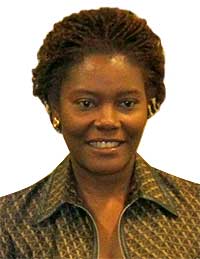This week we are marking the 4th anniversary of a 7.0 magnitude earthquake that struck Haiti in 2010, killing some 200,000 people, while about 1.5 million were left homeless, and also destroyed the fragile public infrastructure.


This week we are marking the 4th anniversary of a 7.0 magnitude earthquake that struck Haiti in 2010, killing some 200,000 people, while about 1.5 million were left homeless, and also destroyed the fragile public infrastructure.While progress in the recovery and reconstruction processes has been slow over the course of the past four years, significant improvements have been observed in the major areas of emergency relief and preparedness for long-term interventions. The capital city of Port-au-Prince and its surrounding suburbs have begun to breathe again as up to 80% of street rubble has been removed. The number of camps for internally displaced persons (IDPs) has decreased to 306 sites and less than 200,000 IDPs await resettlement. Signs of long-term physical reconstruction include; a new terminal at the Toussaint Louverture International Airport, which was partially destroyed by the earthquake, several modern hotels and restaurants have been opened, an industrial park has been set up, two university buildings; and the University Hospital of Mirebalais, among other infrastructures. In terms of other social programmes, the country has registered some progress, but health, proper housing, water and sanitation in addressing the cholera epidemic remain challenging.Haiti needs investments to continue advancing social stability and economic growth. In order to attract such investments, whether from within or outside Haiti, the country has to build better political and social infrastructure.These improvements will in turn require public and private commitment to building expertise, stronger public institutions—the "social” infrastructure that modern and prosperous nations boast.What bogged the process? The main factor lies in the fact that Haiti is constantly having to deliver emergency relief, not only for the devastation of the 2010 earthquake, but also for many other catastrophic events, which have occurred, such as epidemic diseases, hurricanes, and tropical storms.Haiti was raked by four major storms and two tropical storms in the years succeeding the quake. Such events included —Hurricane Sandy among them—and the world’s largest cholera epidemic, which was triggered when UN peacekeepers from cholera-endemic regions introduced the pathogen into a chronically weak water-and-sanitation system.The second major factor is the 10 billion dollars of aid pledged for the reconstruction of Haiti was neither disbursed on time nor in its entirety, according to reports from the Centre for Global Development and the UN Special Envoy for Haiti.As for the amount disbursed thus far, less that 10% was directed to support the Haitian government budget and local NGOs, while most of the funds went to international NGOs and contractors. Two years ago a new body, Cooperation for Foreign Aid Development (CAED), was launched to promote "aid sovereignty” by diverting reconstruction funds towards government priorities and Haitian institutions—both public and private—but to date there has been little success.Another equally big challenge is the persistent presence of an international community that works around rather than with the government in a manner that would support long-term country relief and identified priorities. Both the international community and the Haitian government have fallen short of meeting these goals—there are mutual accusations and they seem to pursue different ends owing to differing priorities.Donors complain about weak Haitian leadership and administration, deficiency in governing experience, absence of a coordination mechanism through which to channel support, delays in signing off on paperwork and follow-up of projects, or scarcity in implementation capacities, among others.As a result, there is much talk of "donor fatigue,” and many initiated projects lack the funding to complete ongoing work or benefit from assistance when supporting institutions depart. For example, the rebuilding of Haiti’s main referral hospital has been halted owing to unfulfilled commitments. Certainly, there are short attention spans in humanitarian work. For its part, the government is irritated by the lack of respect displayed by what is termed "the international community,” a shorthand term for a complex set of institutions and actors with influence in Haiti.Addressing the challengesNo country has ever recovered from a disaster without the support and assistance of neighbours and friends. Further, the same way the Haitian Diaspora has a patriotic responsibility towards their country, the international community holds a moral one. The reconstruction burden cannot be shouldered solely by the Haitian government. Rather, there are three major parties which should play active roles; the government, Haitians in Haiti and those in the Diaspora, and the international community. A partnership of equals should be developed based on mutual respect as well as defined goals and objectives, followed by the elaboration of a strategic planning process, which takes into consideration the reconstruction plan’s goals and priorities. This process will help all parties articulate and design shared priorities through a common understanding of the "rebuilding back better” journey, within which all parties will be held accountable for specific functions. At the end of this journey, Haiti will have established strong institutions, complemented by sound policies as well as modeled processes and systems facilitating implementation.Overall, the fundamental principles of this reconstruction should be reformulated by engaging with Haitian perspectives, taking into consideration foundational elements that comprise the essence of the country and which should inform rigorous policies. Thus, the direction necessary for the reconstruction process will be identified in unison and no party will feel wronged.The writer is the Chairperson Haiti-Rwanda Commission


